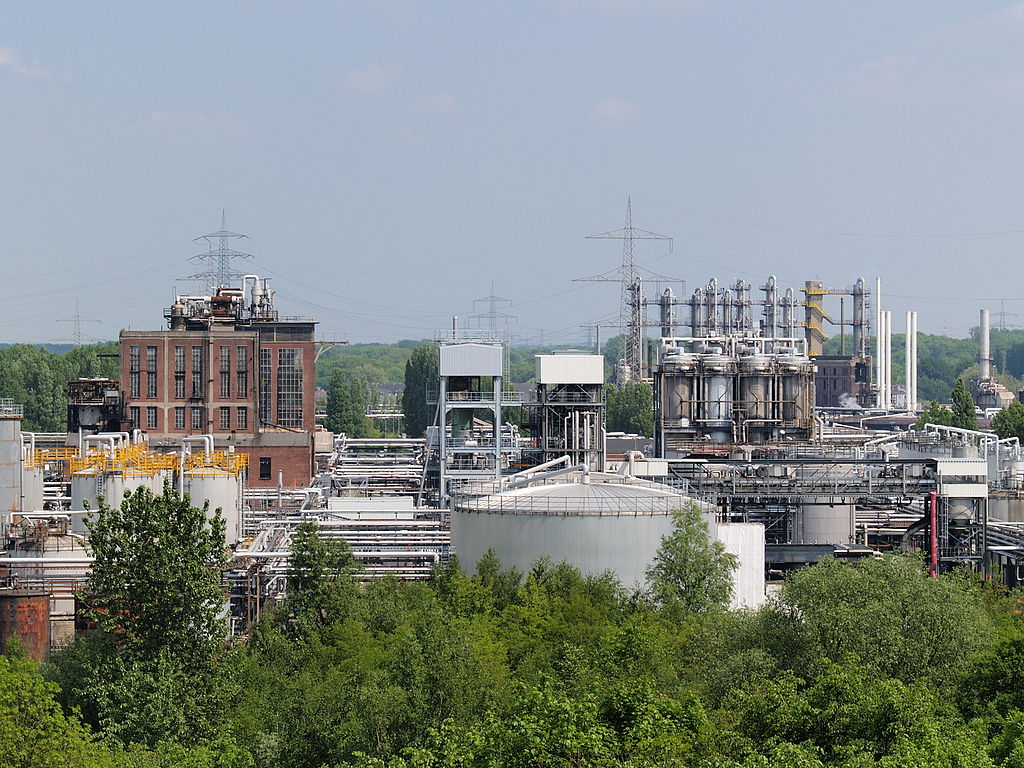The German Chemical Industry Association has now calculated how much electricity the industry would need to be completely climate-neutral in 2045, as decided by the German government. The entire chemical industry would thus need 685 terawatt hours (TWh) of electrical energy per year. This is how much electricity is needed to convert the entire basic chemical industry in Germany to climate-neutral processes. The electricity consumption of the chemical industry would thus be more than 20 percent higher than the electricity consumed in the whole of Germany in 2021. In 2021, Germany consumed 662 TWh of electricity.
Especially for the production of basic materials such as olefins, aromatics, ammonia and chlorine, the industry would need gigantic amounts of electricity if the corresponding production processes were to be CO₂-free.

Image: Arnoldius, CC BY-SA 3.0, via Wikimedia Commons
Electricity demand of the chemical industry is almost 30 per cent higher than current electricity generation
Scientists have published a corresponding study in the scientific journal PNAS. It was assumed that all processes based on crude oil and natural gas will be converted to methanol-based processes. The study considers the conversion worldwide in order to take the global impact into account. If the study were to focus only on individual countries, the effect on the global impact would not be given. This is because the relocation of production sites to countries with less stringent climate requirements would not be taken into account. With a switch to methanol-based processes, the global electricity demand for the chemical industry would be up to 32 petawatt hours. Put into words, that is 32,000,000,000 kilowatt hours or 32,000 TWh. A figure that is actually beyond comprehension. To put this figure in perspective: global electricity production is currently at 25 petawatt hours.
With green hydrogen, electricity consumption becomes even higher
The electricity consumption could be much higher, because the study assumes that the hydrogen needed in the chemical industry is produced from methane and not by electrolysis. In this process, methane is split into hydrogen and carbon. Climate neutrality can only be achieved if this carbon is deposited. Moreover, hydrogen production from methane still depends on natural gas. If only green hydrogen from electrolysis is allowed to be used, the electricity demand of the chemical industry will increase significantly.
